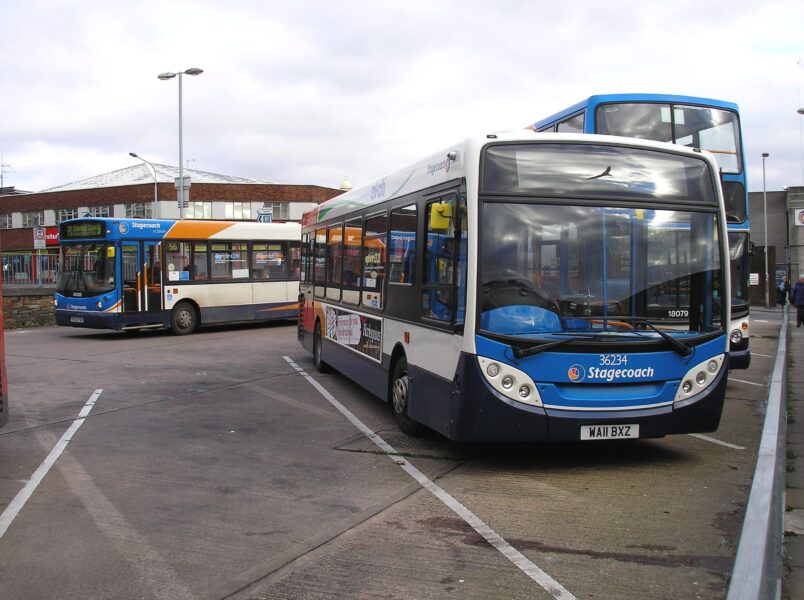
Exeter as a city is very well connected.
The city offers three train stations – Exeter St Davids, Exeter Central, and Digby and Sowton – which connects to lines that go down into Cornwall and stretches out towards London. In just two hours and fifteen minutes, you can reach the capital on the fastest train, making two quick stops at Taunton in Somerset, and Reading in Berkshire. Digby and Sowton station delivers passengers to the industrial estates of Exeter as well as Sandy Park Stadium, home to the premiership rugby team Exeter Chiefs.
Exeter also has a comprehensive bus timetable. Several routes link the many neighbourhoods of Exeter, from Exwick in the west to Heavitree in the east. The bus network is provided by Stagecoach and following a recent increase in public transport use, the operator has invested in additional buses and drivers to keep up with the demand. It has created ‘more co-ordinated timetables’ across the city as a result.
Stagecoach has also made a number of changes to timetables in surrounding areas such as Tiverton and Exmouth with the aim of improving reliability and punctuality of bus services.
the 43 service from Pinhoe to Exeter Airport is being withdrawn as it is ‘not commercially viable’
The University of Exeter has also been liaising with Stagecoach and has started a UNI Night Bus service offered on Wednesday, Friday and Saturday nights to give students a safe and affordable way back to campus accommodation. The service will run on these nights between midnight and 4am and will provide a bus service every 30 minutes.
Other bus routes will see a decrease in services in response to a lack of use. For example, the 43 service from Pinhoe to Exeter Airport is being withdrawn as it is ‘not commercially viable’.
Fewer people have been choosing to commute by car, and this could be due to the traffic coming into Exeter and the lack of parking in the city centre. In 2022, scientists named Exeter city centre as the greenest in Britain based on tree cover and the parks in its proximity, so this could offer a reason as to why cars don’t really fit into Exeter’s transport picture.
In July 2021, Exeter’s bus station was replaced by a glass-fronted facility opposite the Vue cinema. But the former bus station has sparked controversy since being demolished – the Labour Council has proposed the area becomes a car park to accommodate more visitors. The Green Party councillor for the St David’s ward responded by commenting that the plans would completely undermine any effort to reduce carbon emissions in the area. The Green Party invites residents to share alternative ideas for the site that are sustainable in nature and will create a socially and environmentally positive space.
Most services to coastal areas such as Exmouth only operate with two train carriages, and with a student population in excess of 30,000 and a city population of over 130,000, it causes trains to be crammed and congested during peak times or hot summer days.
Stagecoach buses are still fuelled by diesel which contributes to air pollution and carbon emissions. In March this year, Stagecoach announced that the company will roll out electric buses onto the road in early 2026 and that EV charging infrastructure is ready to be deployed in Exeter.
Trains, however, continue to be a problem. The privatisation of the rail industry means the lack of fixed rates keep the prices high, with a return ticket to London for example costing a staggering £229.50! Most services to coastal areas such as Exmouth only operate with two train carriages, and with a student population in excess of 30,000 and a city population of over 130,000, it causes trains to be crammed and congested during peak times or hot summer days. The Dawlish line is also notorious for delays and track issues, such as the landslip that occurred back in June this year.
Whilst Exeter has a solid public transport network and new plans and infrastructure in place, there are definitely areas for improvement.


